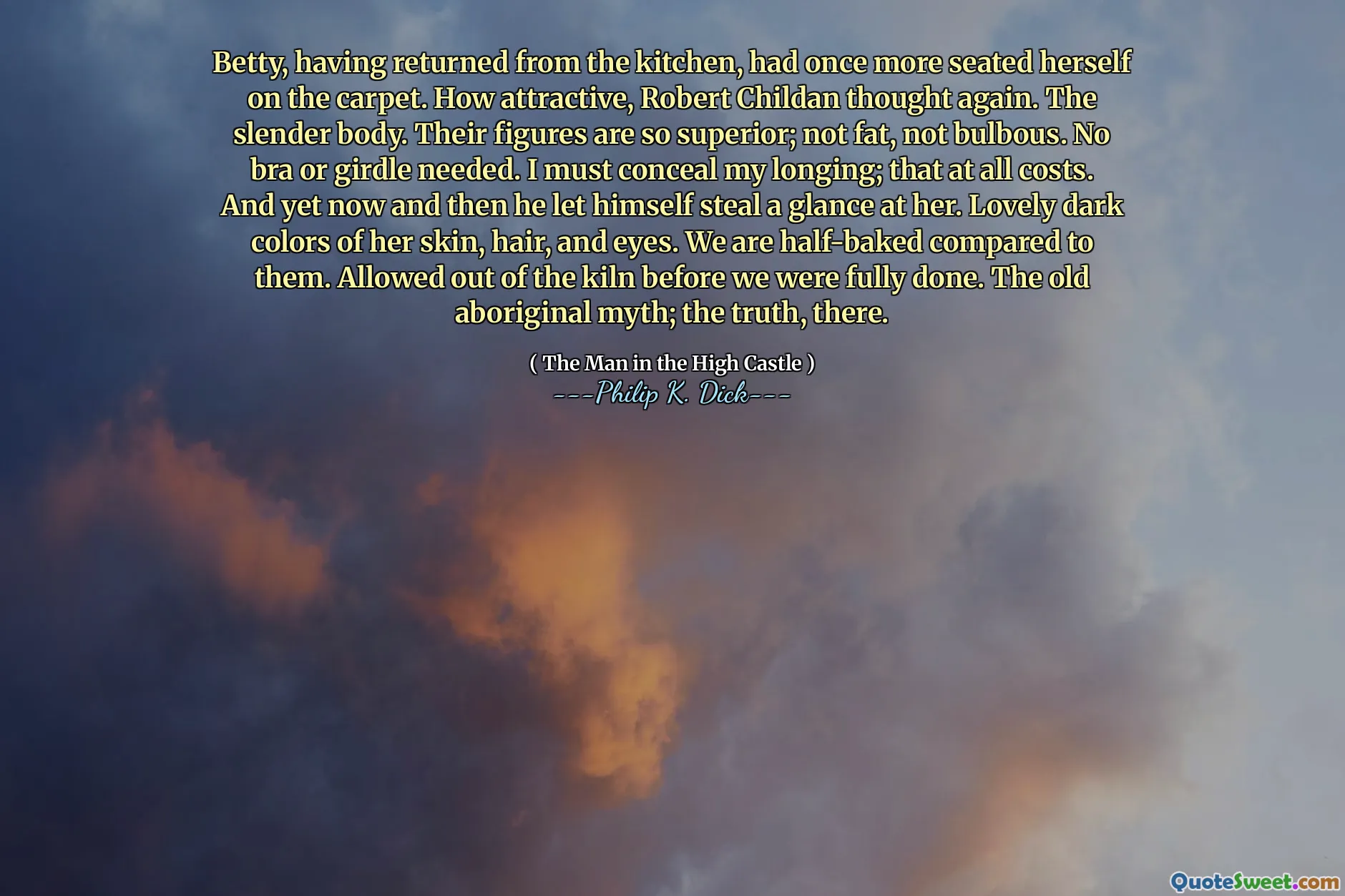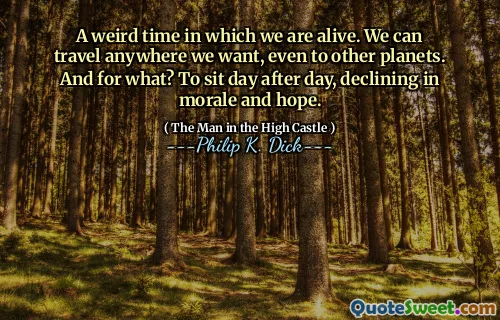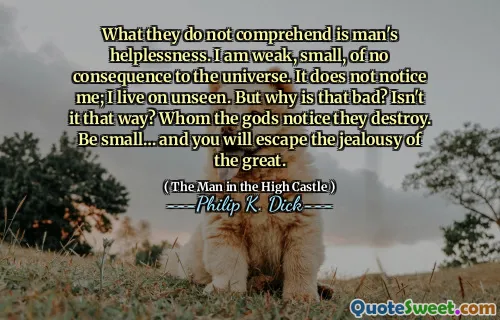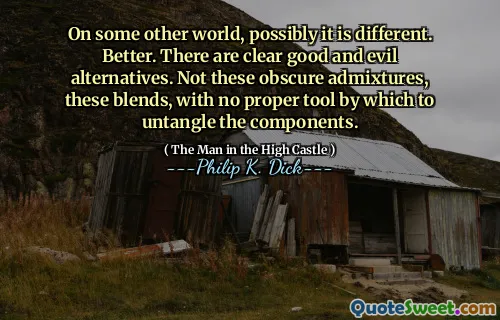
Betty, having returned from the kitchen, had once more seated herself on the carpet. How attractive, Robert Childan thought again. The slender body. Their figures are so superior; not fat, not bulbous. No bra or girdle needed. I must conceal my longing; that at all costs. And yet now and then he let himself steal a glance at her. Lovely dark colors of her skin, hair, and eyes. We are half-baked compared to them. Allowed out of the kiln before we were fully done. The old aboriginal myth; the truth, there.
In this passage, Robert Childan observes Betty with admiration, captivated by her appearance and physique. He finds her slender form particularly attractive and notes the absence of conventional constraints like bras or girdles, which he associates with a sense of freedom and beauty. Despite his desire for her, he struggles to suppress his feelings, feeling inferior in comparison to her. Childan is struck by the contrast between their appearances, reflecting a deeper sense of inadequacy.
Childan's thoughts reveal his belief that he and his peers are imperfect, akin to unfinished pottery, while Betty and her kind seem complete and perfect. This comparison highlights his envy and longing, rooted in a cultural context that values certain ideals of beauty and existence. The mention of an "old aboriginal myth" suggests a connection to deeper truths about identity and self-worth, illuminating Childan's internal conflict between desire and societal expectations.











